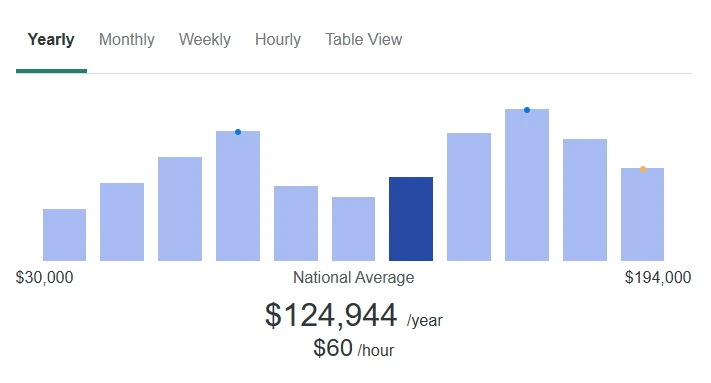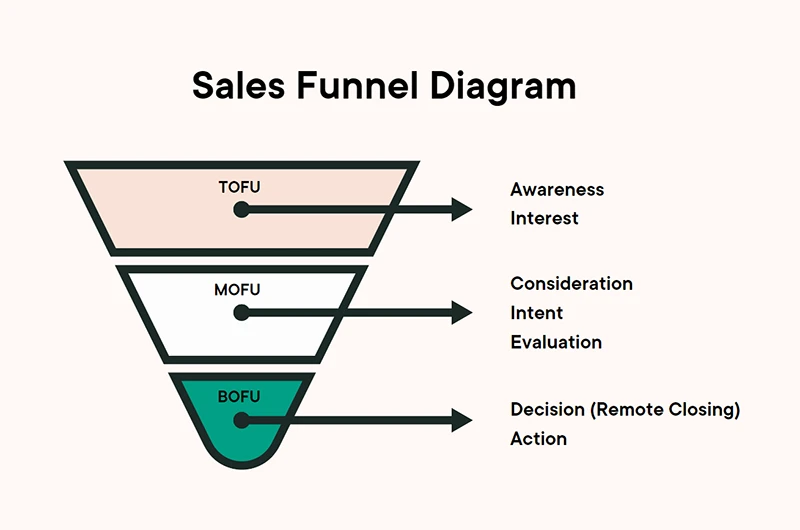Curious to learn more about remote closing? In today’s modern world, the art of closing deals has transcended beyond the traditional face-to-face meetings and has moved towards virtual and remote. As businesses grapple with increased competition and customer expectations, the concept of remote closing emerges as an efficient new strategy.
The trend towards virtual business processes has accelerated dramatically, with a 67% increase in companies adopting remote closing methods over the past three years.
In this article, we’ll discuss remote closing, what it is, and help your business determine whether or note to hire a remote closer.
What is Remote Closing?
While the idea originally used to refer to primarily to real estate transactions, today, remote closing simply refers to the process of finalizing a sales deal or transaction without the need for physical presence. It leverages digital tools and platforms to facilitate communication, document sharing, and contract signing (such as DocuSign), enabling businesses to close deals with clients located anywhere in the world.
Essentially, remote closing uses remote sales teams and online technology ultimately designed to optimize the final stages of the sales funnel.
The roles and responsibilities of a remote closer are multifaceted and can extend beyond just sealing the deal. This typically depends on the size of the company and their sales team, but remote closers are typically responsible for:
- Nurturing client relationships through virtual channels
- Conducting online product demonstrations or presentations
- Negotiating terms and conditions via digital communication platforms
- Utilizing e-signature tools for contract finalization
- Managing post-closure activities like customer onboarding and feedback collection
Why Hire a Remote Closer for Your Business?
Hiring a remote closer is an increasingly popular strategy for businesses looking to enhance their sales processes and improve efficiency. Here are several compelling reasons why integrating a remote closer into your team can be a game-changer:
1. Cost Efficiency
Remote closers reduce the need for physical office space and associated overhead costs such as utilities and office supplies. By transitioning to a remote closing team, businesses can significantly lower their operational costs while still maintaining a high level of productivity and professionalism.
2. Wider Talent Pool
Employing a remote closer allows businesses to tap into a global talent pool, rather than being restricted to the geographic limitations of their local area. This access to a broader range of skills and experiences can lead to higher quality outcomes and innovative sales strategies that may not be available locally.
3. Increased Flexibility
Remote closers can operate across different time zones, providing companies with the ability to conduct business around the clock. This flexibility enhances customer service by enabling businesses to respond to customer needs at virtually any time, thus accelerating the sales cycle.
4. Scalability
As business needs fluctuate, it’s easier to scale a remote sales team compared to an in-house team. Businesses can adjust the size of their remote closing team based on current demand without the logistical and financial burdens of hiring and layoffs.
5. Enhanced Customer Reach
A remote closer can engage with clients across multiple regions without the need for extensive travel. This capability not only saves time and travel expenses but also expands the business’s market reach, allowing it to target new demographics and geographical areas.
6. Focus on Core Competencies
With remote closers handling the final stages of the sales process, in-house teams can focus on developing core aspects of the business such as product development, customer service, and lead generation. This division of labor can optimize operational efficiencies and boost overall productivity.
7. Reduced Time to Close
With focused expertise, remote closers can shorten the sales cycle by efficiently managing leads and using strategic closing techniques. Their specialized skills in negotiation and closing can achieve quicker consensus and faster deal completions.
8. Improved Work-Life Balance
Remote work options often lead to higher job satisfaction and lower turnover among employees due to the better work-life balance they offer. Satisfied employees are more likely to perform well, bringing stability and consistency to your sales efforts.
Key Skills to Look for in a Remote Closer
Hiring the right remote closer is crucial for the success of your sales strategy. While experience and qualifications are important, there are specific skills and qualities that set exceptional remote closers apart from the rest.
Below are some key skills to look for when hiring a remote closer:
- Communication Skills: Exceptional verbal and written communication skills are paramount. Remote closers need to articulate complex ideas clearly and persuasively across digital platforms.
- Technological Proficiency: A high level of comfort with digital tools, including CRM software, video conferencing, and e-signature platforms, is essential for efficiency.
- Negotiation Skills: The ability to negotiate terms effectively while maintaining positive client relationships is a must-have skill.
- Self-Motivation: Remote work requires a high degree of self-discipline and motivation. Look for candidates who are proactive and can work independently.
- Cultural Sensitivity: Given the global nature of remote closing, an understanding of cultural nuances can be a significant asset.
What is the Salary of a Remote Closer?
When it comes to hiring a remote closer, one of the most frequently asked questions is about the salary range. The compensation for a remote closer can vary significantly depending on several factors such as experience, industry, geographic location, and the complexity of the sales process. On average, remote closers in the United States can expect a salary ranging from $50,000 to $150,000 per year, with additional commissions and bonuses that can substantially increase their earnings. ZipRecruiter shows an average annual salary of $124,944 per year.

It’s important to note that many remote closers work closely with appointment setters and get paid on a commission-based structure, which means their income is directly tied to their performance.
This can be an attractive model for both employers and employees, as it aligns the closer’s financial incentives with the company’s sales goals. Some businesses also offer a base salary plus commission to provide a more stable income, especially for those new to the role.
Outsourcing to nearshore or offshore locations can also further reduce costs (we can often help our clients save up to 70% on hiring costs).
How to Hire a Remote Closer
Businesses looking to hire a remote closer have several avenues to explore. Each one offers distinct advantages based on your specific needs and strategic goals.
One common method is through direct hiring, where businesses recruit candidates themselves using online job platforms, professional networks, or industry-specific job boards. This approach allows companies to meticulously vet potential hires and ensure a good cultural fit.
Another option is to partner with outsourcing agencies like 1840 & Company, which specialize in providing vetted remote closers. These agencies offer the benefit of a pre-screened talent pool, significantly reducing the hiring timeline and associated risks.
For more flexibility, businesses might consider freelance platforms where they can hire remote closers on a project-by-project basis, which is ideal for companies with variable demand.
Lastly, leveraging RPO services can streamline the entire hiring process, from job posting to final selection.
Each of these methods provides a scalable, efficient solution tailored to different business needs, allowing for seamless integration of top-tier sales talent into existing teams.
7 Common Misconceptions About Remote Closing
It’s important to address some of the common myths and misconceptions that often surround this modern sales approach:
- Remote Closing is Less Effective: One of the most prevalent myths is that remote closing is less effective than traditional, in-person methods. In reality, remote closing can be equally, if not more, effective due to the speed and efficiency offered by digital tools.
- It’s Only Suitable for Small Deals: Another misconception is that remote closing is only suitable for small, less significant deals. However, with the right strategy and skilled remote closers, even high-value transactions can be successfully closed remotely.
- Lack of Personal Connection: Some believe that remote closing lacks the personal touch that comes with face-to-face interactions. Advanced video conferencing tools and personalized communication strategies can easily bridge this gap.
- Security Concerns: While it’s true that digital transactions require robust security measures, modern e-signature and encryption technologies ensure that remote closing is as secure as traditional methods.
- It’s Easier and Requires Less Skill: Contrary to this belief, remote closing requires a unique set of skills, including technological proficiency and exceptional communication abilities, to be effective.
- Remote Closers are Less Accountable: The notion that remote closers are less accountable due to the lack of physical supervision is unfounded. Performance metrics and regular check-ins ensure accountability.
- It’s a Temporary Trend: Some view remote closing as a temporary trend, driven by the pandemic. However, the shift towards remote work and digital transactions suggests that remote closing is here to stay.
Conclusion
In today’s fast-paced and increasingly digital business landscape, remote closing has emerged as a strategic necessity for companies aiming for growth and global reach.
By understanding its evolution, recognizing the key skills required in a remote closer, and debunking common misconceptions, businesses are better equipped to integrate this innovative approach into their sales strategy.
As we move towards a more flexible and decentralized work environment, embracing remote closing is a critical step in optimizing sales processes and staying competitive in the market.
Ready to hire a remote closer? Schedule a call with our growth experts to learn more.





